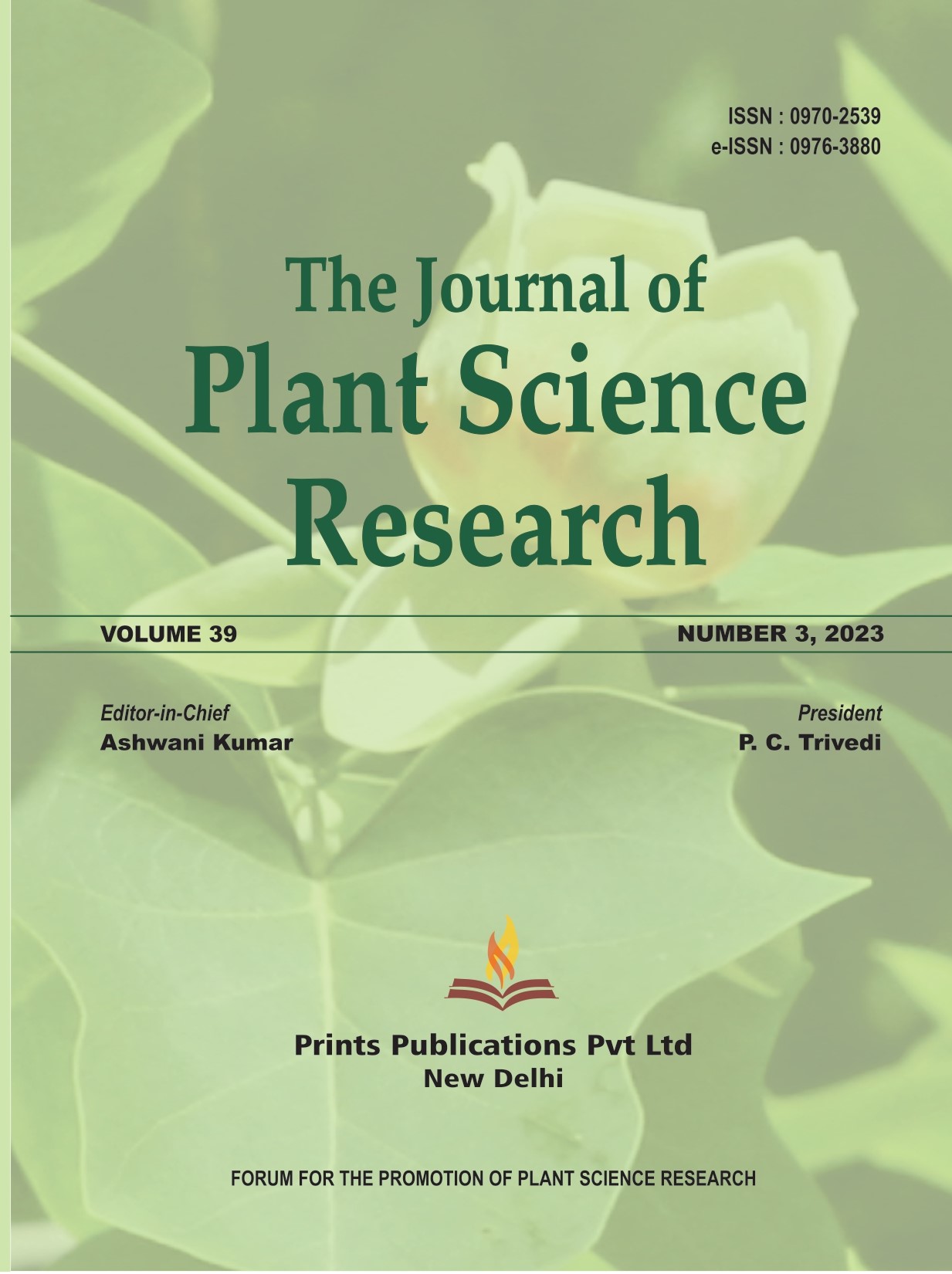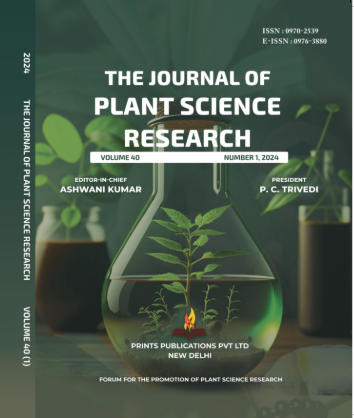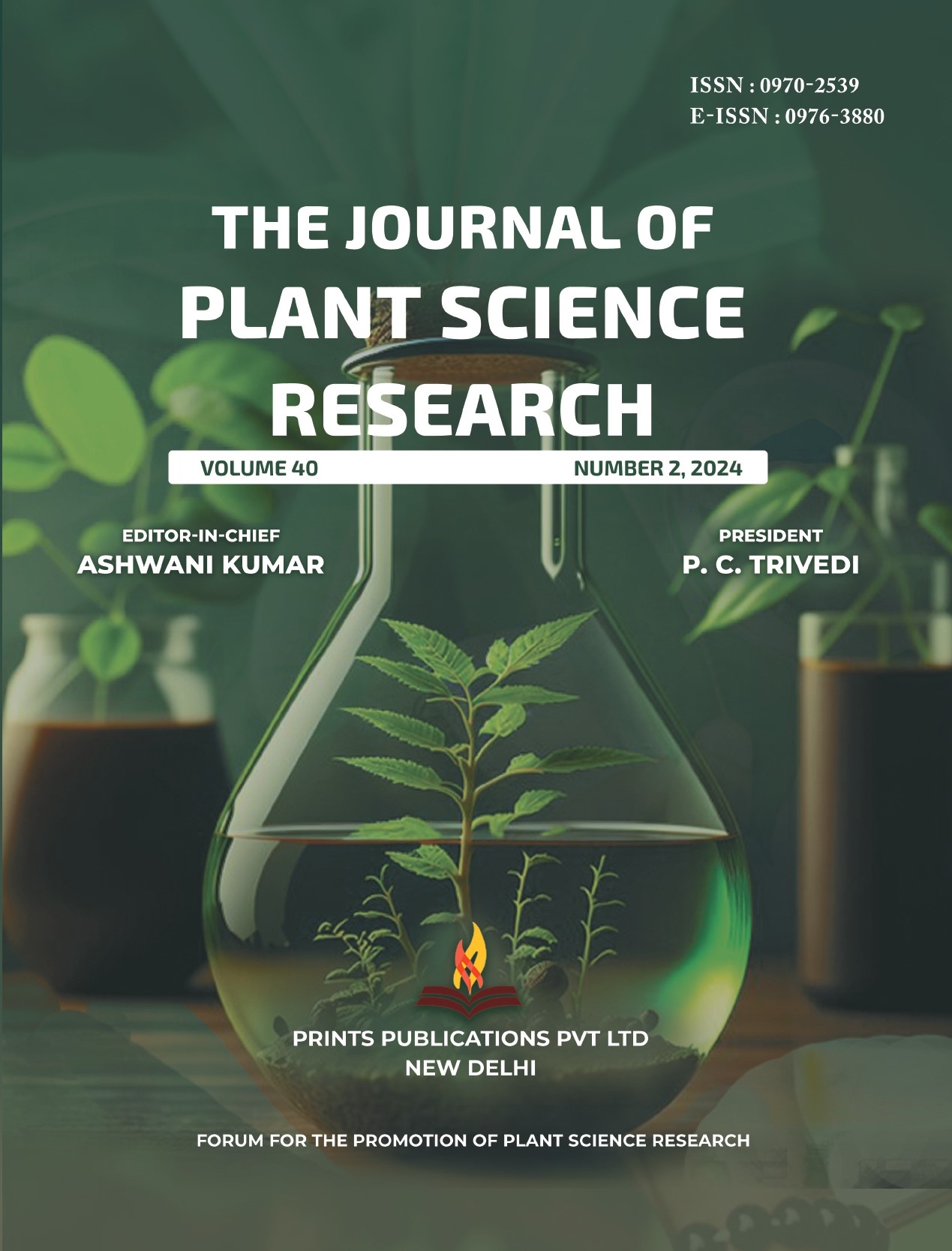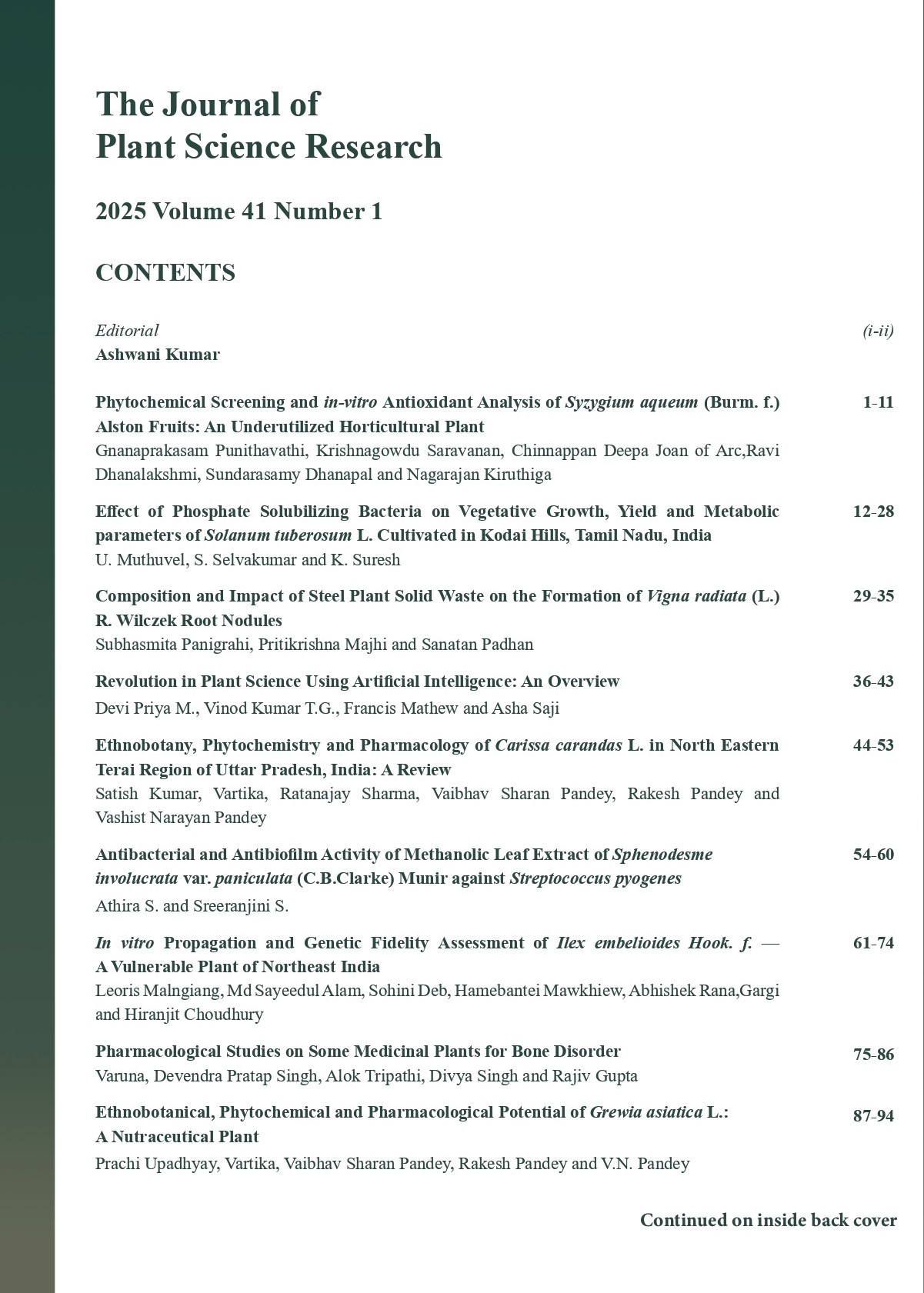The Journal of Plant Science Research - A UGC Care-Listed Journal
Published in Association with Forum For the Promotion of Plant Science Research
Current Volume: 41 (2025 )
ISSN: 0970-2539
e-ISSN: 0976-3880
Periodicity: Tri-annual
Month(s) of Publication: April, August & December
Subject: Botany
DOI: 10.32381/JPSR
Online Access is Free for Life Member
In vitro Cytotoxicity and Phytochemical Screening of Extracts from Selected Medicinal Plants Against Distinct Human Cancer Cell Lines
By : Anil Kumar H. S., Kotresha D.
Page No: 32-41
Abstract
In this current study, in pursuit of novel anti-cancer alternative medicines, four medicinal plant extracts were investigated for phytochemical screening and in vitro cytotoxicity studies, and the most potent cytotoxic extract was utilised for qualitative analysis. For preliminary phytochemical screening, three phytochemical extracts, namely ethyl acetate extract (EAE), methanol extract (ME), and distilled water extract (DWE), of four plants, namely Antigonon leptopus Hook. & Arn., Aristolochia bracteolata Lam., Dodonaea viscosa Jacq., and Thespesia populnea (L.) Sol. ex Corr., were screened, and the same were screened for in vitro cytotoxicity by MTT assay against four cell lines: namely Human Colorectal adenocarcinoma (HCT 116), Human Hepatocellular adenocarcinoma (HepG2), Human lung carcinoma (NCIH-460), and Human Prostate adenocarcinoma (PC3). The presence of several phytochemicals was identified during the phytochemical screening. All IC50 values mentioning 17.50 and 29.47 μg/ml of EAE of A. bracteolata were found to have the strongest anticancer activity against NCIH-460 and HCT-116 cell lines, respectively. The EAE at IC50 of 17.50 μg/ml accounts for about 30 compounds after a qualitative GC-MS study, and it includes anticancer chemicals such as pentadeconic acid, phytol, phenol-2,4-bis 1,1-dimethylethyl, 2,6,10-trimethyl-14-ethylene-14-pentadecene, phytol-acetate, and others. The extract of ethyl acetate from A. bracteolata strongly suppressed the growth of malignant cell lines NCIH-460 and HCT-116 and included many physiologically active chemicals. This could be the first evidence of the antitumor efficacy of A. bracteolata in lung and colorectal cancer screening.
Authors:
Anil Kumar H. S. : Department of Studies in Botany, Davangere University, Shivagangothri, Davangere, Karnataka, India.
Kotresha D.: Department of Studies in Botany, Davangere University, Shivagangothri, Davangere, Karnataka, India.
DOI: https://doi.org/10.32381/JPSR.2024.40.01.5






